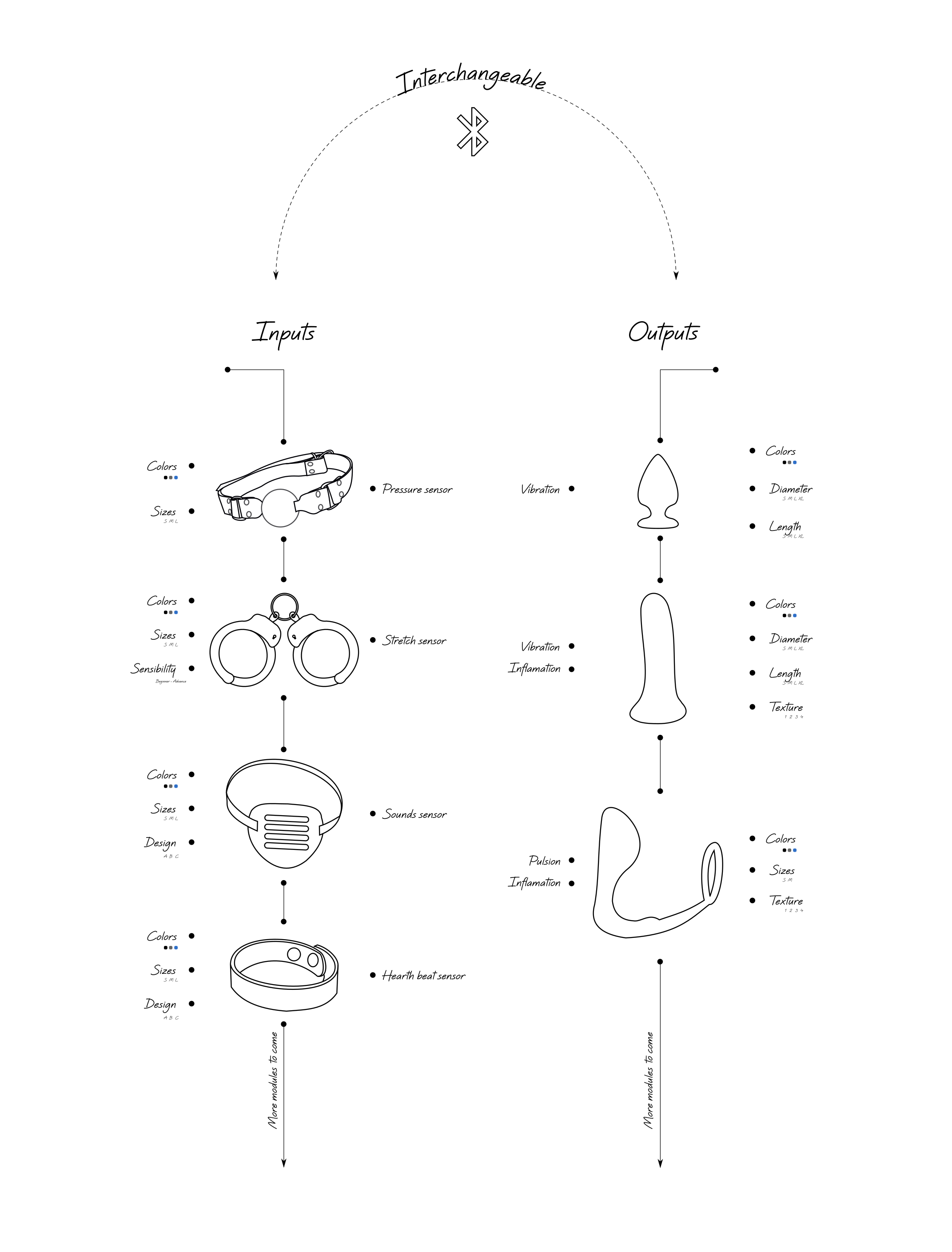Understanding the assignement
As it is presented in the left side section, the assignment is to explore or plan how the final project could be expanded as a commercial product but even more, exploring an ultra-personalized platform. In my case, the idea of hyper-personalization is certainly doable.
To be honest, I have to say that I'm not a complete fan of this idea, but I'll play the game. I'm not a fan for many reasons, one of them is a bit selfish I guess and is related to the processes and research in which a designer passed through to create an object. The processes are very personal and deep I would say and letting the general public modify those makes me feel a little bit uncomfortable. And the public didn't go through the process and might not know what's good for them as those processes are complex. Yet again, if the whole product has been planned to be part of an ultra-personalized product well, it works very well and the concept also works perfectly. Did you realize that when you go to a restaurant where a chef works and design food, there is not even salt and pepper on the table? That sentence speaks for itself.
Also, the internet has been giving the possibility to order products from all around the world by unit and for individuals. It gave us a freedom of choice like never in the history but that comes at a price. A price for the environment, can you imagine the environmental weight of shipping a single product to a personal home? It's is very heavy indeed! Multiply that by thousands of companies that propose hyper-personalized products, it might leads to a catastrophe if not completed with another way of exchanging products and moving them around the world. As a master in international law, I specialize in global economics and it seems to be the globalization by 150! It feels a bit wrong. To me, it has to be linked to a concept of local production and local accesses to products to be completely good and safe.
Finally, sales on Internet has become standard around the world but has also been really hard on states and collectivities income as they are really hard to trace. Usually, people don't like to pay taxes and are mistrustful regarding the states, but as a Canadian that has access to free education, free health services, basic income for everybody, taxes means that everybody has access to a basic quality of life. The concept doesn't necessarily lead to escape of capitals, but we have to be careful about the systemic impact of changing the way of consuming a product. That's could be a complete thesis I guess, but it's some dangers that come quickly into my mind.
To me, it's definitely a great marketing strategy, but we have to be careful about the pervert effects of this type a thinking and to me have to be linked to more than marketing, like the thought of reappropriating the ways of production in a local way like with the Fabcity concept. I'm not against, but I'd like to point out some possible danger as my studies in political science and international law lead me to do.
The concept
As I'm planning to make connected sex toys, a personalization platform seam definitely to be working well. I'll first show a sketch of the global concept (Clic on the image to zoom).

I think the sketch speaks for itself, well I hope so. Just to make sure, the left column has all the inputs and the kind of information it takes. On the right one, there are the outputs and what they do. Many more will come too. The main objective is that the users can interchange all of them and also can customize them with an online system. All of the toys have different options to choose from. Also, the main customers will be, at least for the first phases, mostly for men but can be use by whoever wants to use them.
Finally, as I had the question: Why wanting to connect toys together?. I'll answer here because of the reasons. First, imagine generating sensation by the pace of your own body. But also, and mainly, imagine having toy reacting to the body of our partner. It's like sharing a little bit of the pleasure that the others have.